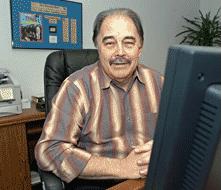
Today’s breed of radio listeners is likely unaware of Al Brady Law.
But Law had three stints in New York radio from the late 1960s to the early 1980s.
Law died Monday of a brain tumor in a New Hampshire nursing home.
Reports put his age at 67.
His work was varied, from air personality to programmer. His start in New York took place as
WOR-FM evening jock in 1969. A year later, even though he bolted for Miami,
Law was heard filling in on WWDJ, primarily on nights.
After some work in Denver, Law was back at WWDJ on a full-time basis.
This time, he was like a player/manager in baseball.
Law was named the station’s program director, along with his air work.
Now that management was agreeing with him, Law wanted more.
Following the short gig at ‘WDJ, Law appeared at WXLO where he was hired solely as the “99X” program director.
However, Law’s dual hats would return in a big way at WNBC Radio.
In 1974, he was named a joint assistant program director and air personality. Later that year,
Law took over as program director but only briefly before resuming his APD/weekend air work.
He remained at the NBC flagship until 1976. After stints in Boston and Washington, Law had another coveted New York job.
Musicradio WABC was a shadow of its former self in 1979. The “D word” caused WABC to plummet.
Disco 92/WKTU was the popular station in the market. It was Law’s decision to stop the bleeding by doing the unthinkable,
firing Harry Harrison, George Michael, and Chuck Leonard.
Law followed the “controversial” time at WABC with, arguably, his best success: a return to the NBC family at their FM.
“I hired Al to his first GM job at WYNY. The station had a great group of talent notably Dan Daniel, Dr. Ruth Westheimer
and Bill St. James,” Walter Sabo tells FishbowlNY. “Al and the PD Pete Salant took the station to a 5.0 share.
His background was pure programming, not sales, and that’s why he was capable of managing such rapid audience growth.”
Eventually, he was promoted to VP of programming at NBC Radio.
“He was a kind, humorous and precise manager,” Sabo recalls.
“He knew what he wanted and if you knew what you wanted, he’d say, ‘It might work, go do it.’”
Photo courtesy: All Access.com